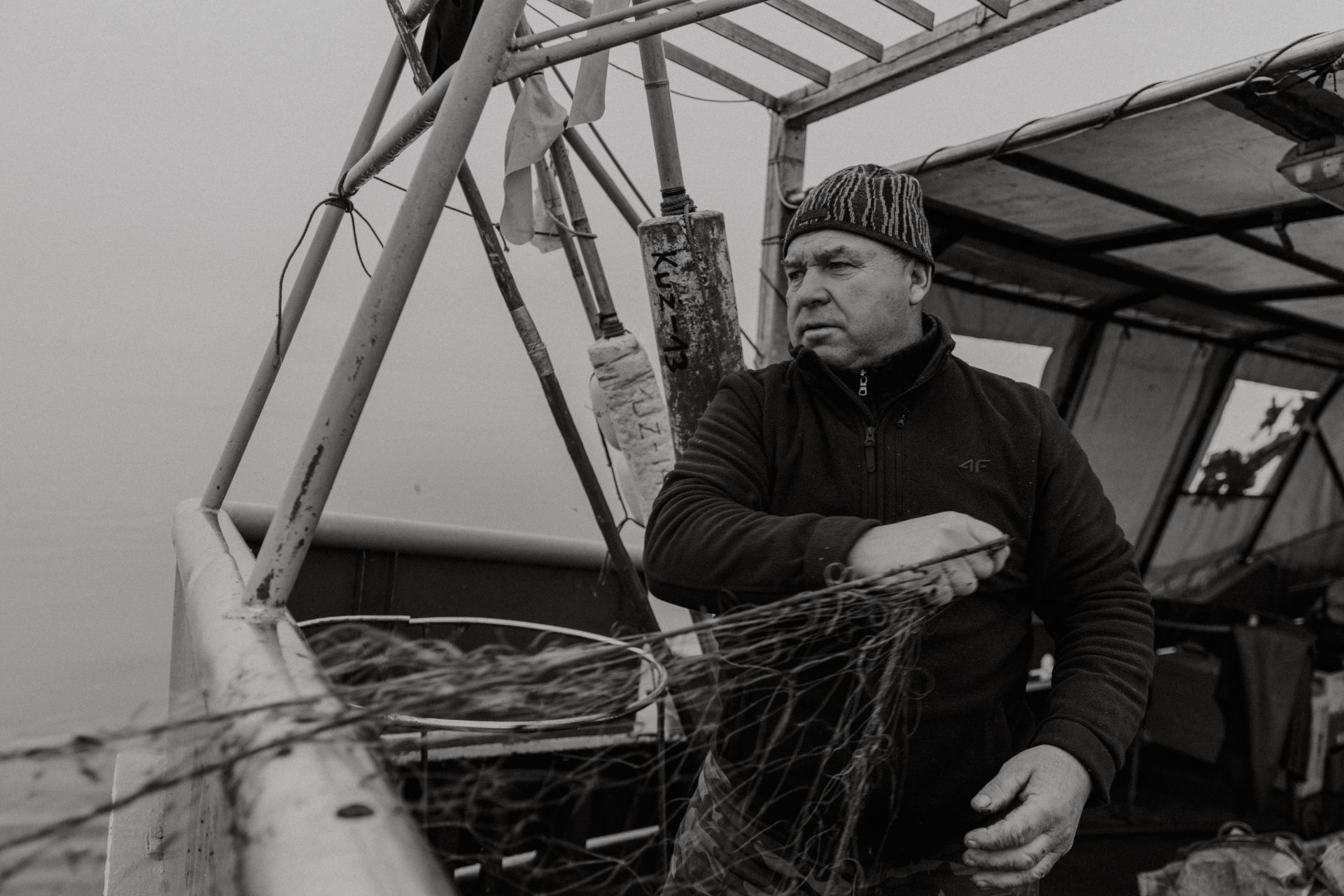Listen to this story
Antoni Struck looks like a casting director’s idea of a fisherman. He is rugged, with a round face, and wears unbranded workwear and sturdy boots. The 65-year-old is nothing like those members of the Association of Polish Coastal Fishermen who wear flashy watches and drive a nice set of wheels. In fact, when the association meets in the local hall in northern Poland, some of the attendees look less like fishers and more like business people who happen to have a stake in fisheries. Struck sits through these meetings, in no mood to be pushed around, arms folded stubbornly across his chest. “A man can put up with a lot of things,” he is fond of saying. “But he needs to know just one thing: What it is for.”
His boat is moored in the harbor in Kuznica on Poland’s Baltic coast. Traditionally a fishing settlement, Kuznica is now better known as a tourist resort, its narrow stone streets and quaint brick houses promoted as an attraction for the hundreds of thousands of Poles who holiday here on the Hel Peninsula every summer. On a foggy autumn morning in 2022, the tourists were long gone, the souvenir stands folded away and the windows of the seafood restaurants curtained. Struck boarded the swaying boat without breaking stride, as though the deck were an extension of the pier. The engine sputtered and the smell of diesel traveled over the water. Create a free account to continue reading Already a New Lines member? Log in here Create an account to access exclusive content.



